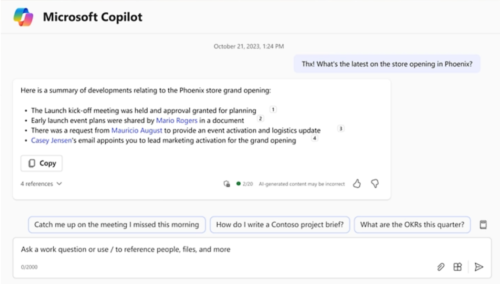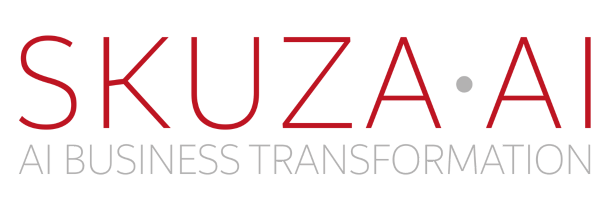Do you also struggle with the lack of performance metrics for AI in your customer operations?
You’re not alone.
Many organizations find it challenging to effectively measure and optimize the impact of AI technologies. How can you be sure that AI implementations are truly enhancing your service and not just adding noise?
In this issue, I want to explore explore how Microsoft’s Copilot for Service has not only boosted key performance indicators like customer satisfaction and operational efficiency but has also demonstrated the critical importance of defining clear success metrics. We’ll discuss the transformative effects of Copilot across customer interactions and how these innovations serve as a blueprint for integrating AI seamlessly into customer service operations.
Furthermore, we’ll discuss how establishing precise and aligned success metrics is essential for any AI-driven initiative, ensuring that these technologies deliver tangible improvements and align with broader business objectives.
Microsoft’s Copilot for Service: Boosting Performance in Contact Centers
Microsoft has recently highlighted the impressive performance metrics of its Copilot for Service solution, a virtual assistant designed for contact centers. At the Dynamics 365 Business Applications launch event, significant achievements were shared, demonstrating how this tool is transforming customer service operations.
Performance Metrics:
- Customer Satisfaction Increase: The introduction of Copilot for Service has resulted in a 12% increase in customer satisfaction (CSAT) scores across contact centers using the solution.
- Enhanced Efficiency: The solution has also enabled customer service agents to handle 14% more customer cases per hour, showcasing a significant boost in operational efficiency.
- Reduction in Handling Time: Microsoft’s internal use of Copilot within its contact center last year led to a 12% reduction in average handling time (AHT), further underscoring the efficiency gains from this AI tool.
- High Agent Approval: Notably, 77% of agents expressed that they would prefer not to work without the assistance of this virtual helper.

Integration and Use Cases:
Copilot for Service is integrated with Microsoft’s ecosystem, including Outlook and Teams, allowing seamless operation within existing workflows. It supports various functionalities like summarizing conversations, providing insights during interactions, and generating draft emails for agents, which can be edited and sent. This flexibility is extended through Microsoft Copilot Studio, enabling contact centers to customize applications to meet specific needs.
Broader Impact:
Copilot for Sales: In addition to service enhancements, Microsoft’s Copilot is also making strides in sales departments. Copilot for Sales is reported to save sellers an average of 90 minutes per week by automating routine tasks like email drafting and meeting preparations, which not only boosts productivity but also enhances overall sales performance.
Conclusion:
Microsoft’s Copilot for Service exemplifies how integrating generative AI into customer service can lead to substantial improvements in both agent efficiency and customer satisfaction. The tool’s ability to adapt to various systems and its integration within Microsoft’s broader software ecosystem makes it a valuable asset in the competitive landscape of CRM and customer service technology.
By leveraging AI to enhance customer interaction and operational efficiency, Microsoft is setting a high standard in the realm of contact center performance metrics, positioning Copilot as a pivotal tool in the future of customer service and sales strategy.
For organizations considering AI integration, Microsoft’s Copilot offers a compelling case study of success in real-world applications, providing valuable lessons in the effective deployment of AI tools to boost business outcomes.
Sources:
The Importance of Success Metrics in AI Customer Service
The integration of AI in customer service can greatly enhance efficiency and effectiveness, but measuring the outcomes of such projects can be challenging due to their complexity. Establishing clear success metrics is crucial from the start, as they allow organizations to assess the true impact of AI initiatives, avoiding misallocations of resources and ensuring that the AI’s benefits align with business goals.
The Crucial Role of Defining Success Metrics
Success metrics serve multiple vital functions in AI projects. They help align AI efforts with strategic business goals, set realistic expectations, and enable data-driven decision-making. Metrics also measure return on investment (ROI) and justify resource allocation, fostering accountability and encouraging continuous improvement among teams.
The Benefits of AI in Customer Service
Implementing AI in customer service can revolutionize interactions between businesses and their customers. Key benefits include:
- Efficiency and Cost Reduction: AI automates routine tasks, reducing operational costs and improving service speed.
- Improved Customer Loyalty: Enhanced interaction quality leads to higher customer satisfaction and loyalty.
- Data-Driven Insights: AI provides insights into customer preferences and behavior, aiding in the refinement of service strategies.

Common Challenges in Defining AI Success Metrics
Defining effective success metrics for AI projects involves overcoming several challenges:
- Technological Complexity: AI’s unpredictability makes it hard to set straightforward metrics.
- Intangible Benefits: Benefits like enhanced customer satisfaction are difficult to quantify.
- Evolving AI Landscape: The rapid development of AI technology requires frequent updates to metrics.
Aligning AI Metrics with Business Objectives
For AI metrics to be truly beneficial, they must reflect the organization’s strategic priorities and be designed to measure specific outcomes related to customer support efficiency and satisfaction. Metrics need to be adaptable to reflect changes in technology and business objectives, ensuring they remain relevant and provide actionable insights.
Conclusion: The Need for Continuous Improvement and Adaptation
AI projects require an iterative approach to metric definition, involving regular reviews and adjustments to align with evolving business needs and AI capabilities. The case study of Allegro’s Visual Search integration effectively illustrates the application of these principles, showing significant improvements in customer engagement and business results through well-defined, aligned metrics.
Sources:
https://www.tidio.com/blog/customer-success metrics/
https://www.zendesk.com/blog/ai-customer-service/
https://blog.hubspot.com/service/customer-service-stats

